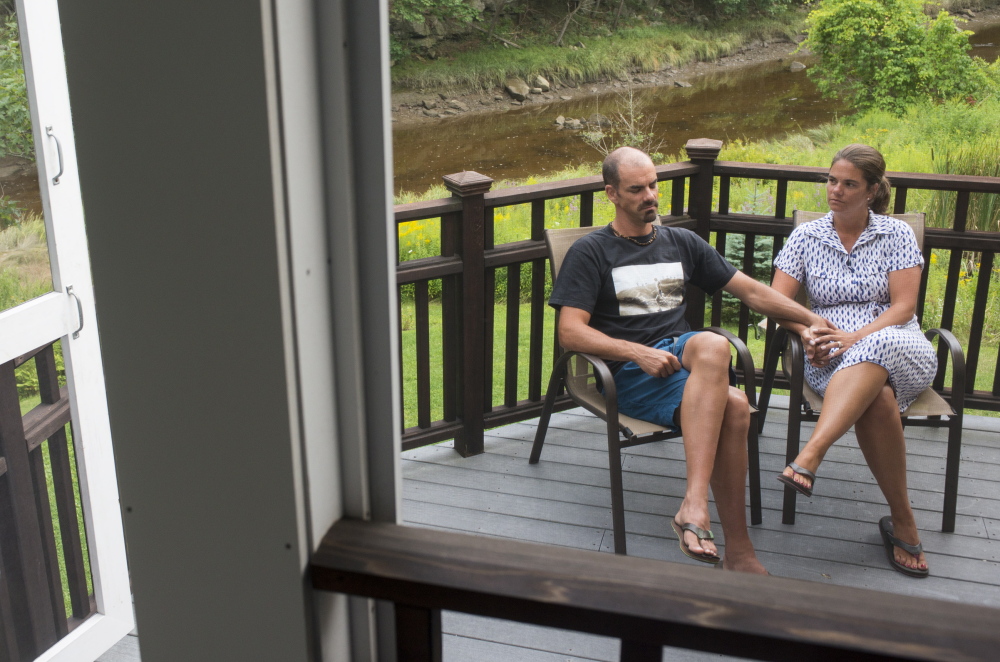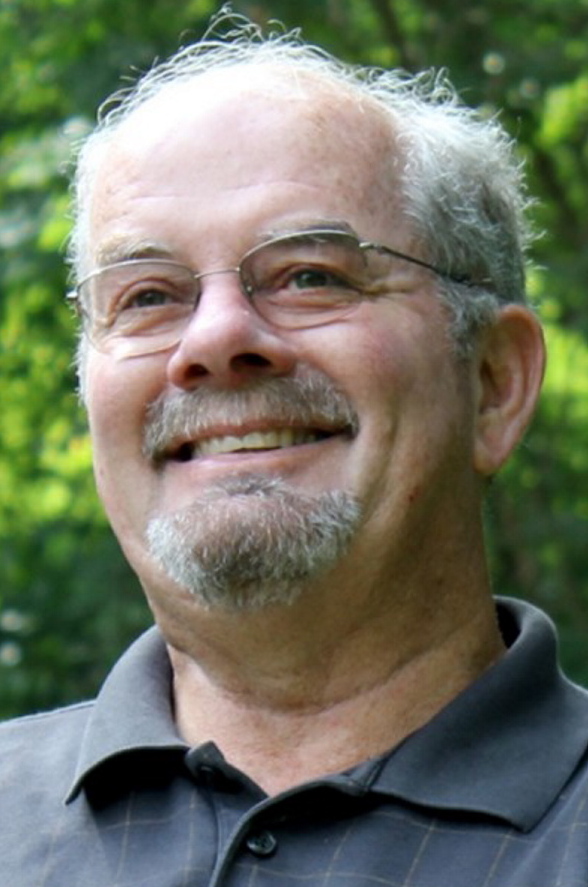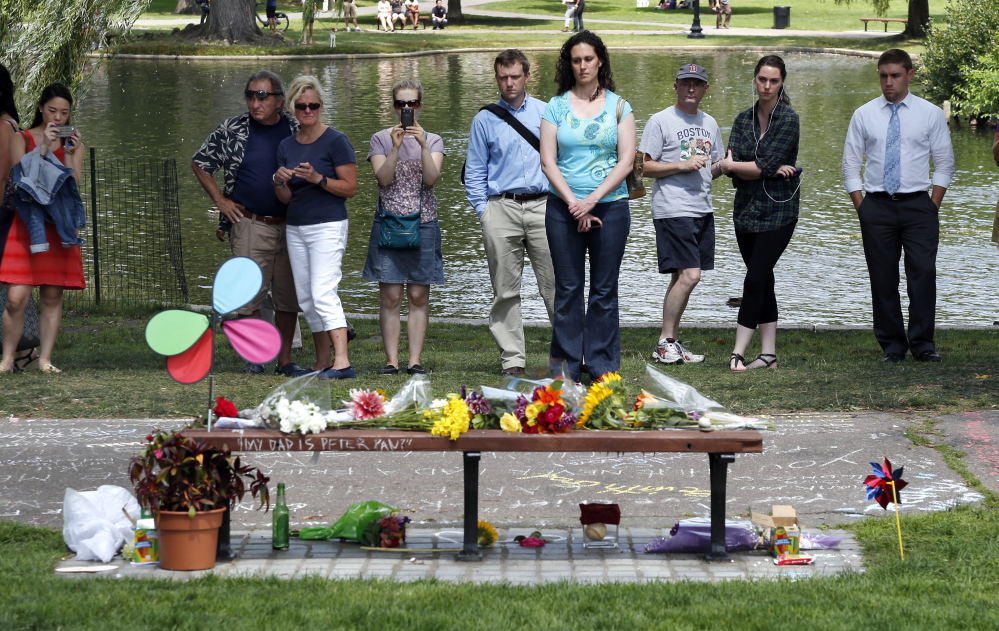Paul McGowan had two younger siblings who killed themselves. His children never thought he would do the same.
“Never,” said his daughter, Erin Haye.
McGowan’s brother and sister had histories of emotional and addiction issues – problems that never plagued the first-term state legislator from York, said his son, Cory McGowan.
But after a string of medical issues led to depression and, more recently, suicidal thoughts, McGowan checked himself into St. Mary’s hospital in Lewiston for psychiatric treatment last month. Just weeks after finishing his 10-day stay, McGowan, 67, ended his life on July 27.
His family’s decision to talk publicly about his death comes as mental health and suicide are at the fore of the nation’s consciousness after acclaimed actor and comedian Robin Williams hanged himself Monday following bouts with substance abuse and depression. He was 63.
White people and men long have had higher suicide rates than women and other races. But data compiled by the American Association of Suicidology, released this year by the U.S. Centers for Disease Control and Prevention, shows that suicide rates among all people aged 45-64 jumped 30 percent between 2001 and 2011. That’s primarily the baby boomer generation made up of people born between 1946 and 1964, now 50 to 68 years old.
In Maine, there were an average of 196 suicide deaths per year between 2007 and 2011. Eighty percent were men and 40 percent were people between 45 and 64 years old.
During that period, suicide was the leading cause of injury death in the state, followed by an average of 153 motor vehicle fatalities annually, according to the Maine Department of Health and Human Services.
Maine’s 235 suicides in 2011 gave it the 11th-highest suicide rate in the country, at 17.7 deaths per 100,000 people, according to the CDC data, and the second-highest in the Northeast behind Vermont, which ranked fifth nationally. The national suicide rate for that year was 12.2 per 100,000 people.
Greg Marley, clinical director of the National Alliance on Mental Illness Maine, said the isolation of rural living, the high rate of gun ownership and a large percentage of white people all contribute to the high rate of suicide in the state.
He attributed the recent jump in the rate among 45- to 64-year-olds to the country’s economic downturn, paired with more societal pressures and higher expectations for achievement.
“They’re starting to assess, ‘Have I been successful in my life or have I not?’ ” Marley said. “If they haven’t been able to achieve financial or employment success, it’s a harder time.”
Marley said that’s especially true for men who become unemployed.
“Females are not so closely tied to their job for their sense of self, sense of dignity,” he said.
Men also are less likely than women to reach out for help, Marley said.
That’s why suicide prevention and awareness for working-aged men have become a priority for NAMI Maine. Marley taught a session at Bath Iron Works on Tuesday.
Although McGowan had retired from working as an organization development consultant, he had started a new career as state representative after being elected in 2012.
About a year and a half ago, after a surgery, he started having medical problems that made it hard for him to get around, said Haye, his daughter.
“That’s sort of when things changed,” she said. “There were a lot of different medical issues happening at the same time and not a lot of success with trying to fix them.”
It got worse in the month or so before he died, she said. He wanted more than anything to continue serving in the Legislature, but his medical issues weren’t improving. He announced last month that he wouldn’t seek re-election.
Haye said her father, a widower, had talked about how he was feeling with his children and siblings, but no one else.
“I wonder if my dad had been able to talk to more people and not been ashamed or worried about it, something could have changed,” she said.
That’s why his family has decided to be honest about why he died.
“If we could just help one person, in a weird way, this would be kind of OK,” Haye said.
McGowan’s family hasn’t quite figured out how they’ll help. They’re still dealing with the logistics of his death and processing their loss.
“The big lesson so far is just how quickly this kind of stuff can happen,” Cory McGowan said. “I think all of us that were close to him feel very similarly – that we wished we had known how serious it was.”
Hearing about Robin Williams’ death was hard, Haye said, especially because he was “another public, obviously much more public figure.”
He was also one of her father’s favorite actors.
“I hope they’re laughing together,” she said.
Send questions/comments to the editors.







Success. Please wait for the page to reload. If the page does not reload within 5 seconds, please refresh the page.
Enter your email and password to access comments.
Hi, to comment on stories you must . This profile is in addition to your subscription and website login.
Already have a commenting profile? .
Invalid username/password.
Please check your email to confirm and complete your registration.
Only subscribers are eligible to post comments. Please subscribe or login first for digital access. Here’s why.
Use the form below to reset your password. When you've submitted your account email, we will send an email with a reset code.